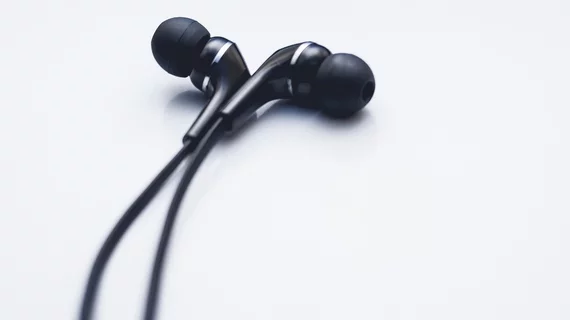Mindfulness audio eases symptoms for prostate cancer patients during radiation therapy
Prostate cancer patients who practice mindfulness during radiation therapy sessions experience fewer side effects afterward, a new study shows.
Northwestern University Feinberg School of Medicine experts suggest that listening to a short audio recording during radiation sessions can reduce feelings of fatigue, anxiety and depression related to cancer treatment. Although the study was conducted on a small cohort of men, experts signaled optimism for how their findings could benefit those who might be reluctant to seek support while battling cancer.
“We were really leveraging the fact that they were a captive audience,” principal investigator David Victorson, director of integrative oncology at the Cancer Survivorship Institute at the Robert H. Lurie Comprehensive Cancer Center, said in a release. “We’re optimizing their treatment to not just treat their cancer but also get a jump on managing physical and emotional side effects.”
For the study, experts divided men receiving radiation therapy for prostate cancer into two groups: one who listened to 3-6 minute audio recordings walking them through different aspects of mindfulness—breath work, posture, awareness of the sounds and environment around them—and another who listened to relaxing music during treatment. The interventions started on Day 1 of Week 2 of treatment and continued for four consecutive weeks.
Men in the mindfulness group reported significant improvement in their symptoms, whereas the group who listened to music felt that some of their symptoms actually worsened.
In the mindfulness group, experts observed a 2.65-point score decrease in fatigue and a 4.5-point score decrease in sleep disturbance. In contrast, the music group’s fatigue scores worsened by 7.46 points, while their sleep disturbance scores also rose by 6.15 points.
“Men with cancer—no matter the age—are a hard group to help because they don’t tend to engage in supportive care activities like their women counterparts. You build it and they don’t come,” Victorson said. “The fact that this intervention is passive—they don’t have to go to a support group, and they can be getting their treatment while we layer on symptom support—is a twofer.”
Listen to this enough and you start to notice thoughts come up. The goal is to see if you can observe them without reacting to them. That’s how to regulate our constantly thinking, ruminating, and reacting minds,” he added. “It can be very helpful in managing anxiety, pain and fatigue.”
The study is available in the journal Global Advances in Integrative Medicine and Health.

